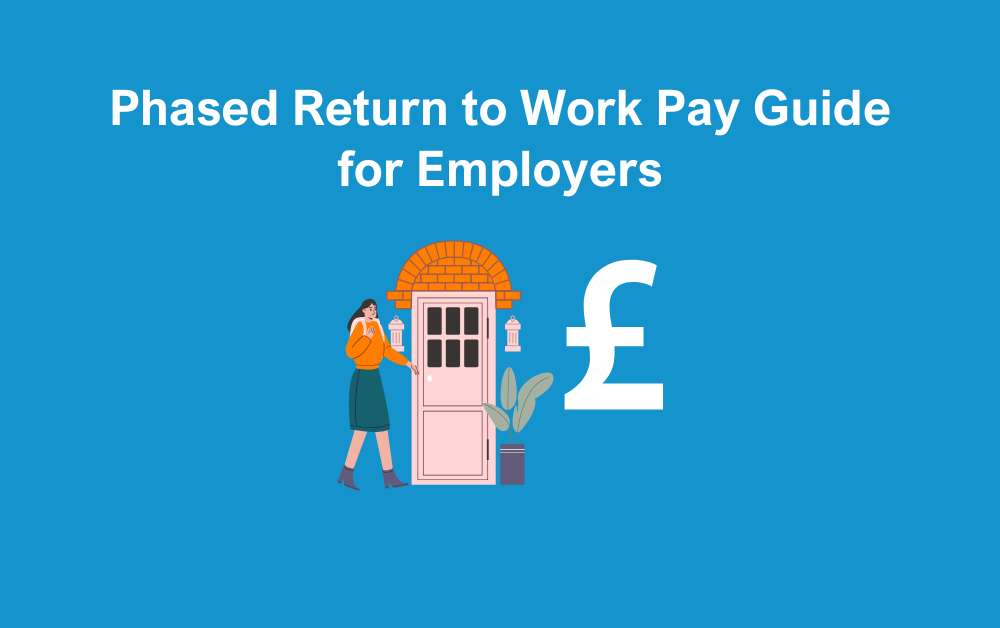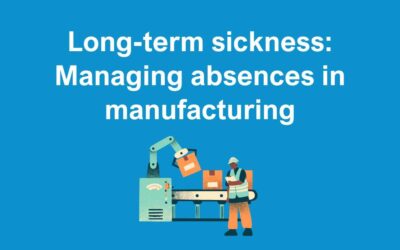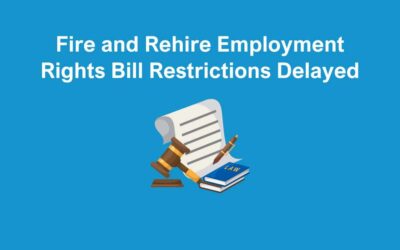Managing an employee’s return to work after a period of sickness can be a delicate process, especially when it involves a phased return to work. Employers often want to support staff as they recover, but questions about pay can quickly arise. Should the employee receive full pay, reduced pay, or statutory sick pay during this time? Getting it right is important — not just for compliance, but also for maintaining fairness and trust. In this guide, we’ll explain how phased return to work pay should be handled. We will also look at what the law says, and how you can take a balanced approach that supports both employees and the business.
What is a phased return to work?
A phased return to work is a structured approach that helps an employee ease back into the workplace after being off for a period of absence. Rather than returning to their full duties straight away, the employee gradually increases their working hours and responsibilities over an agreed period of time. This allows them to rebuild their confidence and capability while continuing their recovery. A phased return might involve working shorter hours, taking on lighter duties, or temporarily carrying out alternative tasks that differ from their usual role. The goal is to support a smooth and sustainable transition back to full work capacity.
When is a phased return introduced?
A phased return is often appropriate after a long-term illness, bereavement, or serious injury. This helps employees rebuild their strength and confidence as they ease back into work.
What should an employee be paid during a phased return to work from sickness absence?
If your employee works reduced hours as part of their phased return after long-term sickness absence, they may not have a contractual right to be paid for their normal working hours. The pay they are entitled to during this time will depend on the terms of a contractual sick pay scheme or similar policies. Therefore, they may be entitled to contractual sick pay to cover the hours that wasn’t worked during the gradual return to work.
What if there’s no contractual entitlement?
In this scenario, it’s up to you as the employer to decide if you want to pay your staff their full salary during this time. If there is no agreement in place for full pay to continue, you can also reduce the employee’s pay in line with their reduced working hours. The key consideration is whether the employee agrees to this temporary change in both their hours and rate of pay. Once an agreement has been reached, you should record the details. You must also ask ask the employee to confirm their acceptance in writing before the phased return begins.
Statutory Sick Pay Entitlement
If eligible, employees could be entitled to statutory sick pay. However, this will depend on working patterns during the gradual return. SSP is only payable where there are linked periods of sickness absence lasting at least four consecutive days. Therefore, they will not be entitled to this if their phased return includes less than four consecutive days when they are not working.
How The HR Booth Can Help
At The HR Booth, we work with businesses across the UK to manage employee sickness absence and phased returns to work effectively. Our experienced HR consultants can help you create a clear and compliant process that supports employees as they recover, while protecting your business interests.
We provide practical, hands-on HR support to ensure your policies and procedures are up to date with UK employment law. This includes reviewing your sickness and absence management policies, and advising on pay entitlements during phased returns. It also includes helping you communicate any temporary changes to working hours or pay.
Whether you’re based in Fife, Glasgow, Manchester or anywhere else in the UK, The HR Booth can provide tailored HR advice that meets your organisation’s specific needs. We’ll guide you through each step — from developing phased return plans and liaising with occupational health, to ensuring documentation is accurate and legally compliant.
Our goal is to help you manage phased returns to work in a fair, supportive, and consistent way that strengthens employee engagement and keeps your business running smoothly.
Conclusion
A well-managed phased return to work benefits both the employee and the business. It allows the individual to recover at a sustainable pace while ensuring the organisation retains valuable talent and minimises disruption. Employers should handle pay arrangements carefully, making sure decisions are fair, consistent, and agreed in writing. Clear communication, empathy, and compliance are key.
With the right guidance, you can strike the right balance between supporting your employees and maintaining operational efficiency. The HR Booth can help you achieve just that.







